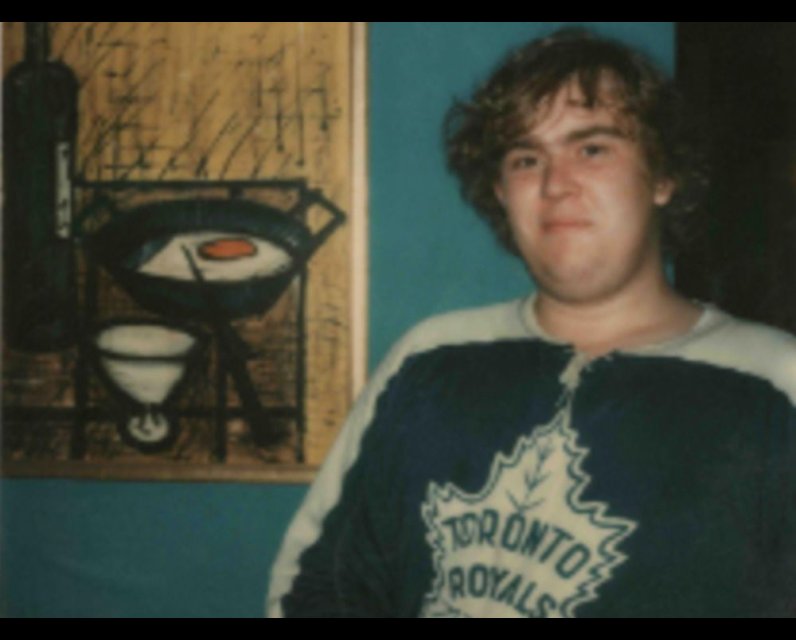New biography sheds light on John Candy's remarkable empathy

It’s an incident that tells you a lot about John Candy. He was hard at work on Only the Lonely, the 1991 film that would help affirm his credibility as a dramatic actor. But it also marked an occasion when the famously affable Candy lost his cool when he realized that his legendary co-star, Maureen O’Hara, was not receiving the respect she deserved.
His top billing and seven-figure salary ensured luxury treatment for Candy during the shoot. That included the provision of an opulent trailer on location. Such was not the case for O’Hara: despite her status as a reigning queen of Hollywood during the 1940s and 1950s, she had been assigned something insultingly basic.
Thanks to a meticulously researched biography of the revered Canadian comic, we now have the straight goods on what happened.
An angry Candy demanded the producers find a better trailer for O’Hara who had been coaxed out of retirement to play his mother. Otherwise, he warned, he would turn over his own celebrity trailer to her.
Shortly afterwards, a huge trailer “magically” arrived for the 71-year-old O’Hara.
The incident may show Candy exercising a hard-edged display of star power, but he was no prima donna. That’s the judgment of veteran entertainment writer Paul Myers, whose new biography of the Canadian superstar arrives this month. Indeed, Candy was greatly loved by those who knew and worked with him, and it was entirely characteristic of him that he should distribute some 200 free Thanksgiving turkeys to cast and crew members during the Only the Lonely shoot.
“But he did have issues whenever he saw injustice,” Myers tells Postmedia. “I’m not equating him with Mother Teresa but he was certainly very high-minded over how he was treated and how people around him were treated.”
So coming to Maureen O’Hara’s defence was part of Candy’s nature. He was similarly protective of crew members: if he saw one of them subjected to unfair abuse by a producer or director, he would intervene. “If he saw that someone was being paid less than they should have been he would speak to a producer. Whenever he had issues with anybody, it was because of some perceived core of injustice. There have not been that many people in the industry who were as personally caring as John Candy.”
As for Candy’s artistry, both with his defining work in comedy, going back to his early triumphs with Second City Toronto and television’s SCTV, and his later emergence as a dramatic actor: “He was very intelligent, very intuitive, very creative.”
John Candy: A Life In Comedy Paul Myers Anansi
But above all Candy liked people. “He loved his family, but he also loved the teamwork. He was in his happiest place interchanging with others.” More than three decades have passed since John Candy died in his sleep at the age of 43 in Durango, Mexico. He had been filming Wagons East, the last of a dreary list of carelessly chosen projects redeemed only by his formidable comic presence. It was an unhappy coda to a career cruelly cut short.
Yet, he had an acute awareness of his own mortality, and he would express surprise when he turned 40 that he was still alive. The warning signals were always there: a father who had died at the age of 35; a lifelong struggle with his weight that at one point saw it balloon to 375 pounds; anxiety attacks that often forced him to summon up all his willpower to overcome them; an innate fear of loneliness.
He was never self-destructive in the reckless vein of a Charlie Sheen or Chris Farley. He was too dedicated to his craft for that but he was also dangerously careless about his health — and that troubled Steve Martin, his co-star in the hugely popular Planes, Trains & Automobiles. Martin, who admired Candy greatly, worried that he was on an “uncontrollable spiral of damaging his health … that he was betraying himself for some reason that I don’t know.”
Some earlier writings about Candy have suggested that he was imprisoned in a very dark place psychologically and that the refusal of friends and colleagues to talk about him following his death is indicative of a coverup. Myers encountered no such stonewalling in researching the present book. He wanted to create a “narrative of truth” and there was no shortage of people willing to help in an outpouring of affection.
“I got close to people like Dan Aykroyd, Steve Martin, Catherine O’Hara, Martin Short, Eugene Levy, Chevy Chase, Tom Hanks — and they were all eager to tell me their memories of John Candy Yes, they were candid at times, yes they were alarmed about him at times, but the ‘darkness’ some people talk about has been overplayed.”
For sure, however, there were struggles to keep personal demons at bay.
“I don’t think I realized at first how much he had to endure as a large person,” Myers says. ‘There were so many fat-shaming jokes. Even the press and other people would talk to him about being a large guy — and how painful that was for him. Yet he was expected to laugh along with it, especially since he was a comedian. A comedian doesn’t get angry — you go along with it … you don’t want to be labelled as difficult.”
Myers is not only celebrating the Candy legacy here. He’s also celebrating the remarkable explosion of creative comic talent that occurred more than half a century ago in Toronto. It was a flowering that had its roots in such disparate events as a local production of the musical, Godspell, and the decision to transplant Chicago’s famed Second City culture north of the border. It was productive soil for people as prodigiously gifted as Candy and his friends.
“Second City Toronto was uniquely different from Second City Chicago,” Myers says. “Their creativity was uniquely Canadian but also exportable. They ran in a different direction and created a very Canadian form of improv. Something amazing happened — and it would play well to the world. This is something I’ve always been interested in, especially now when we’re wondering what makes us different from the Americans.”
Our website is the place for the latest breaking news, exclusive scoops, longreads and provocative commentary. Please bookmark nationalpost.com and sign up for our daily newsletter, Posted, here.


Comments
Be the first to comment